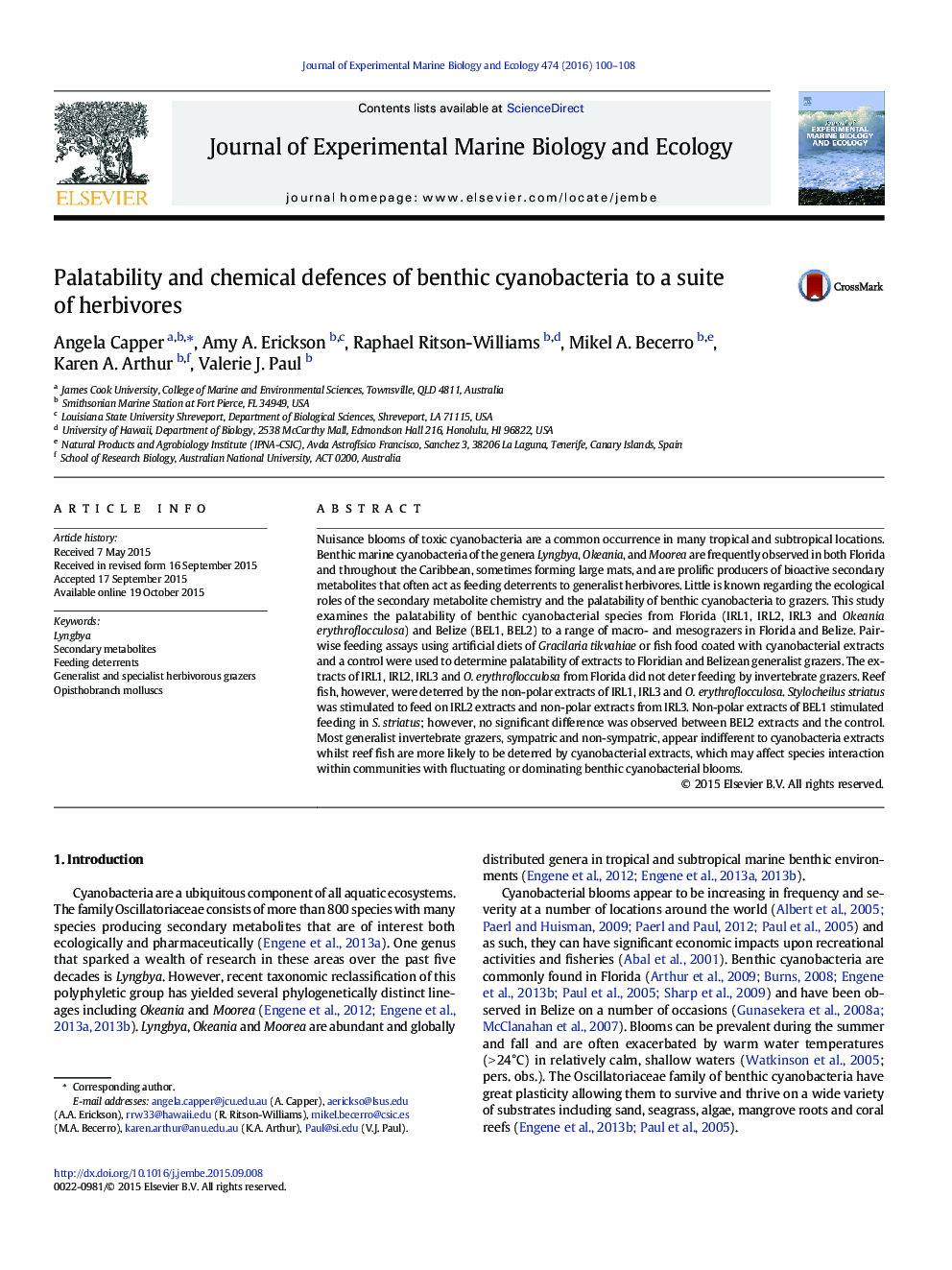| کد مقاله | کد نشریه | سال انتشار | مقاله انگلیسی | نسخه تمام متن |
|---|---|---|---|---|
| 4395309 | 1618401 | 2016 | 9 صفحه PDF | دانلود رایگان |
• Generalist invertebrate grazers indifferent to cyanobacterial extracts
• Reef fish more likely to be deterred by cyanobacterial extracts
• Sea hares are stimulated by cyanobacterial extracts.
Nuisance blooms of toxic cyanobacteria are a common occurrence in many tropical and subtropical locations. Benthic marine cyanobacteria of the genera Lyngbya, Okeania, and Moorea are frequently observed in both Florida and throughout the Caribbean, sometimes forming large mats, and are prolific producers of bioactive secondary metabolites that often act as feeding deterrents to generalist herbivores. Little is known regarding the ecological roles of the secondary metabolite chemistry and the palatability of benthic cyanobacteria to grazers. This study examines the palatability of benthic cyanobacterial species from Florida (IRL1, IRL2, IRL3 and Okeania erythroflocculosa) and Belize (BEL1, BEL2) to a range of macro- and mesograzers in Florida and Belize. Pair-wise feeding assays using artificial diets of Gracilaria tikvahiae or fish food coated with cyanobacterial extracts and a control were used to determine palatability of extracts to Floridian and Belizean generalist grazers. The extracts of IRL1, IRL2, IRL3 and O. erythroflocculosa from Florida did not deter feeding by invertebrate grazers. Reef fish, however, were deterred by the non-polar extracts of IRL1, IRL3 and O. erythroflocculosa. Stylocheilus striatus was stimulated to feed on IRL2 extracts and non-polar extracts from IRL3. Non-polar extracts of BEL1 stimulated feeding in S. striatus; however, no significant difference was observed between BEL2 extracts and the control. Most generalist invertebrate grazers, sympatric and non-sympatric, appear indifferent to cyanobacteria extracts whilst reef fish are more likely to be deterred by cyanobacterial extracts, which may affect species interaction within communities with fluctuating or dominating benthic cyanobacterial blooms.
Journal: Journal of Experimental Marine Biology and Ecology - Volume 474, January 2016, Pages 100–108
